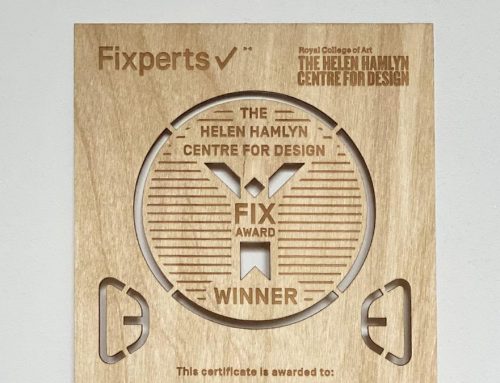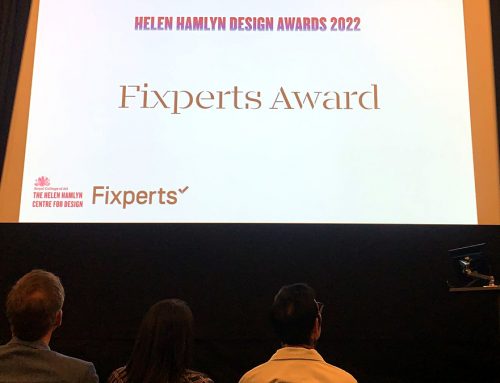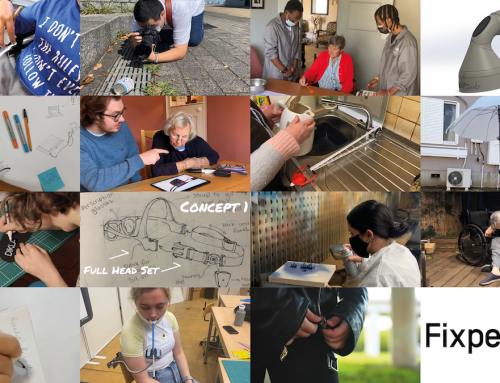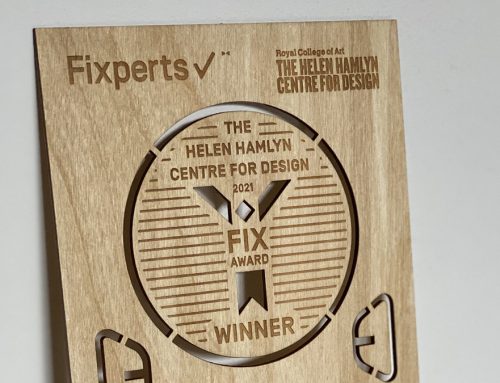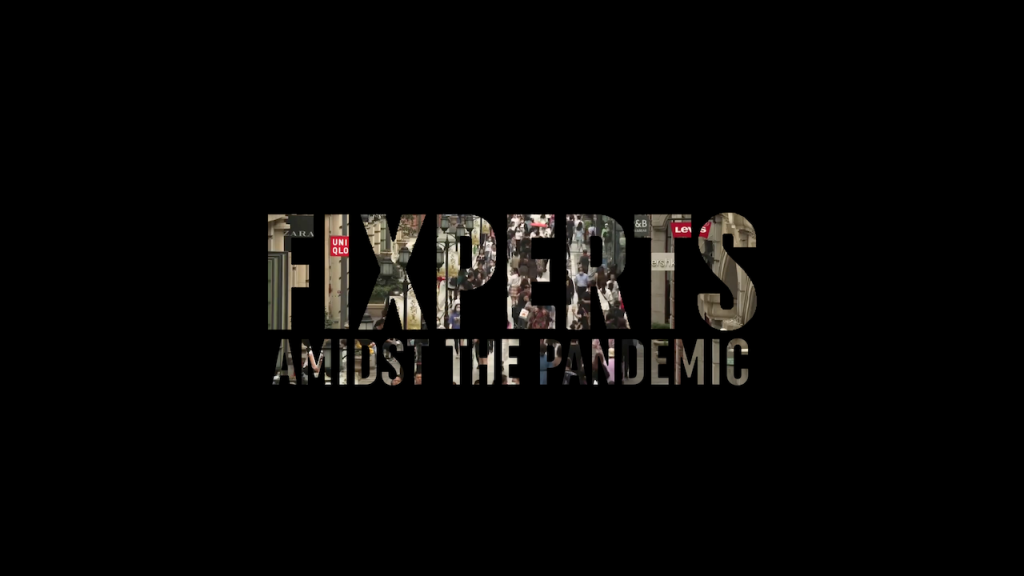
Fixperts in a time of Covid-19 – Insight from Mike Kann
Author: Mr Mike Kann, Programme Director, Industrial Design and Technology BA, Lecturer (Education) in Industrial Design and Fixperts course leader at Brunel University London.
Fixperts course 2020-2021: 119 Students across 21 groups, taught by 4 tutors.
–
Introduction & Background
Fixperts has been running at Brunel University London for around five years as part of the curriculum in core FHEQ4 module Design Process 1, with students across all courses taking part, from the more technically focused Product Design Engineering BSc to the human-centered leaning Industrial Design & Technology BA. This is always popular and provides an early opportunity to engage with real life, niche problems, follow co-design processes and work as a team to develop an outcome with a meaningful impact on someone’s life. This has historical strong engagement and high quality outcomes, with past Brunel Design School student projects nominated and winning the Royal College of Art Helen Hamlyn Fixperts Award in 2020, so it was important to maintain a positive experience of this project when planning the upcoming academic year in August 2020. Despite the impact of Covid-19, restrictions were easing and trends seemed positive, with the aim of some limited face-to-face teaching from September to December leading to full on campus teaching from January 2021. While this meant that the Fix Partner project would be minimally impacted, student and Fix Partner safety was discussed in the teaching team and advice to students was included in course content and module handbooks.
–
Coming up to the Winter Break it was clear the situation was again out of control and a long lockdown was imminent, so it was important to understand and communicate how to conduct a Fixperts project in these circumstances. Student feedback from the previous academic year had already led to a helpful change, with the briefing lecture and team distribution shifted from the first week of Term 2 to the last week of Term 1. Students had three weeks to find a Fix Partner with a niche problem they could work with meaningfully, despite lockdown constraints. We suggested teams chose a Fix Partner within their bubbles to allow them to comply with lockdown restrictions.
–
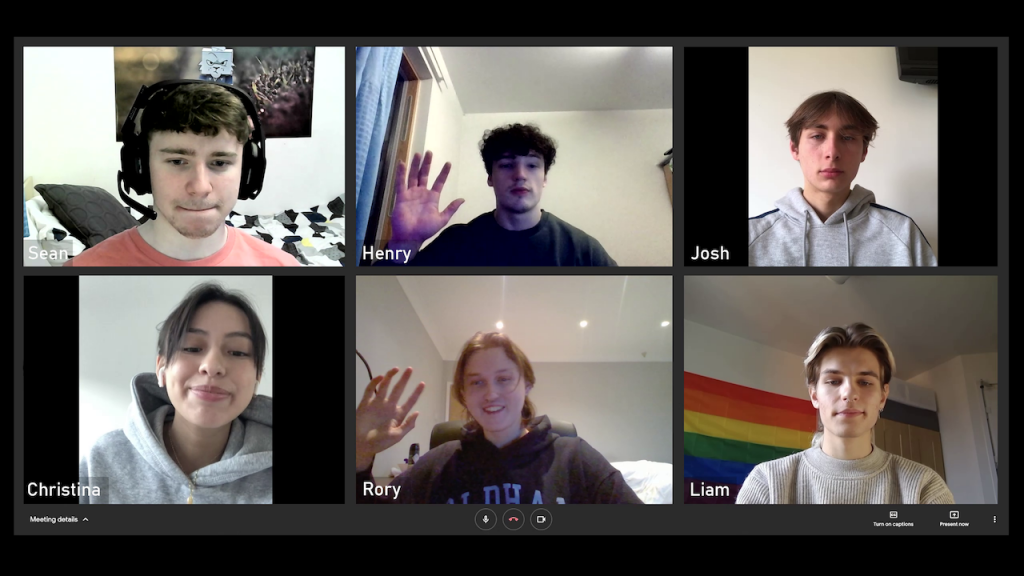
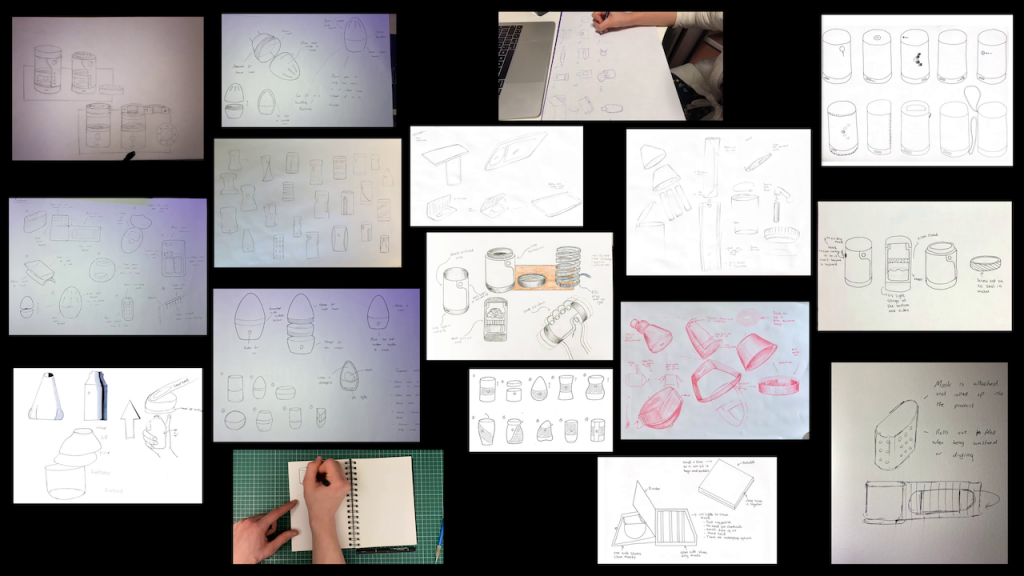
–
Lockdown 2 & Planning Updates
Addressing the challenges of lockdown included suggestions of early, effective organisation and planning of the project, sharing content online through cloud drives, using online whiteboards for idea development and holding online meetings and discussions on Zoom or Teams and arranging information through WhatsApp or Discord. We advised that logistical issues were considered early in the process, including meetings with the Fix Partner, making and posting of test rigs, scheduling team meetings and planning and starting video editing early on. While each team member was asked to contribute to all aspects of the project, it was suggested that students may have specialities that could help delegate tasks. For example, the student with easier access to the Fix Partner may be the ‘researcher’ or those with manufacturing facilities could be the ‘maker’. We also found it useful to manage student expectations, with ‘dirty engineering’ a useful way of describing test rigs, prototypes and final outcomes, as it was important to not overstress students in terms of the quality of the final outcome, especially as they may have had no workshop access. We made it clear the final model build quality and materials wouldn’t impact the grade, with the quality of thinking, process and outcome as proof of principle to solve the problem considered more important.
–
During the six weeks of the project, we provided specific guidance tailored to the team’s situation and progress via online platforms, focusing on efficient and effective collaboration within the student team and with the Fix Partner. Towards the start of the project this tended towards guidance on the application of research and creativity methods such as semi-structured interviews, shadowing, brainstorming and problem identification through reflection on interviews. As the project progressed we asked students to consider the logistics of making and testing their prototypes, with ordering materials, modelling, refining through ideation and testing with Fix Partners expected to take much longer than in normal times. We encouraged students to work collaboratively online and develop individual prototypes and sketch models from relatively simple materials including card, foam and household objects. These were used to physicalise concepts, allowing for meaningful exploration of complexities and testing with Fix Partners. These outcomes were tested face-to-face or via online video calls, with the Fix Partner feedback supporting further refinement in use, comfort, aesthetics or how well the problem was being addressed.
–
While we stressed that the final outcomes refinement/quality wouldn’t impact on the grading, as long as it proved the concept’s principles our students tend to enjoy the making process, while the tutor team offered advice and support throughout on material selection, hacking of commonly available materials or the use of household objects. The Brunel 3D print workshop remained open and sent prints to students, while some students were able to access shed/garage workshops or use their distributed manufacturing facilities, such as hobbyist level 3D printers.
–
Presentations were arranged as an all-day session to be held on Zoom, with students provided with the running order, timings, room link and passcode a week prior to the event and students in other years and external academic staff invited to attend. Following each film a question and answer session was opened to students and guests, before teaching staff asked questions to inform the final grade each team was given, with student peer feedback and reviews informing individual grades.
–
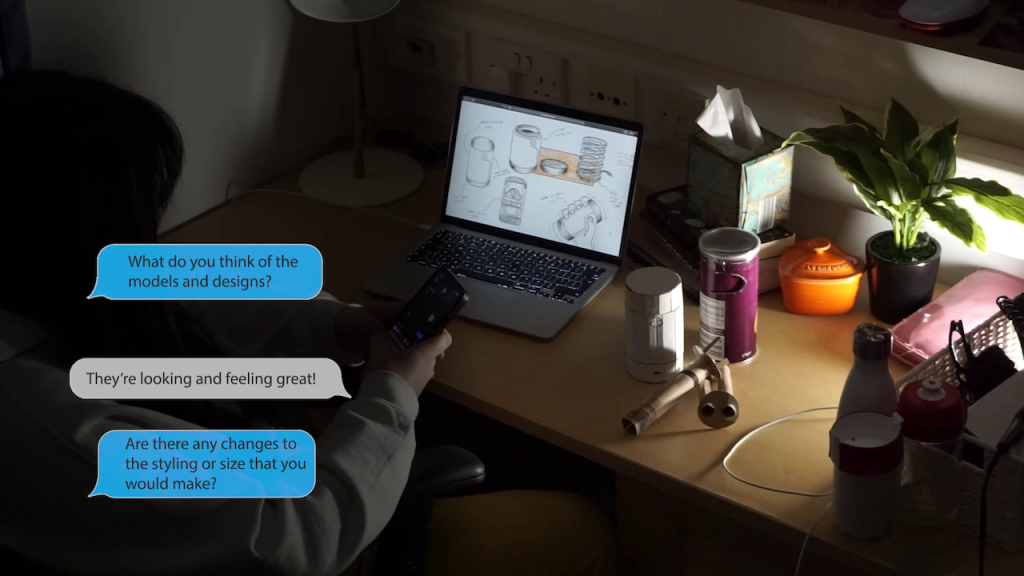
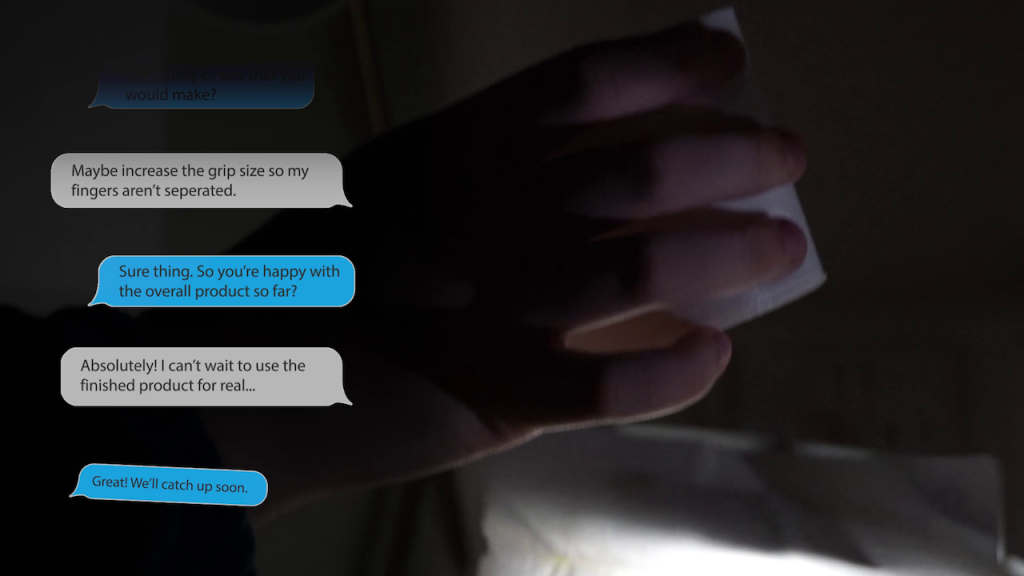
–
Student Outcomes & Reflection on Delivery
Despite the challenges of running this programme under lockdown, the outcomes were of a good quality, with the overall standard at least comparable to previous years and some of the projects exceeding expectations massively. Fix Partners tended to be student’s family or flatmates (and so in their bubble), working in industries exempt from lockdown or framed by the context of exercising. However, issues arose when students studying remotely recruited Fix Partners in foreign countries, with timezone clashes or language barriers making it harder to communicate and develop projects. It was made clear to the students that they should lead the process as the expert designers, with the outcomes informed, not specified, by their Fix Partner. Some teams followed this co-design research process and position, but this was not universally understood, despite clear explanation, discussions of the processes and intent of co-design in related lectures and examples of other co-design projects with design research and consultancy practices.
–
Collaboration through this project was challenging for students – group projects can be difficult at the best of times on campus, so the complications of working online and remotely added extra difficulties in communication, team building, collaborative project development and test rig/final outcome developments. While some teams worked well together and collaboratively developed refined outcomes, team dynamics seemed strained compared to previous, with more communication breakdowns and tensions in groups. Teams were often less well prepared and engaged in tutorials, less collaborative and less willing to get involved in taking part in sessions outside of contact time with tutors. With two weeks to the deadline the tutor team were concerned that at least four teams were extremely behind schedule – a significant increase to previous years. This might be due to a lack of face-to-face engagement and the clarity this can bring, and the ability to ‘hide’ more easily, with students not living on campus, not answering calls or messages, and not getting involved in the process. It’s also worth considering the motivation problems that lockdown caused incoming students, who expected a very different university experience and may have struggled to adapt to the reality of the situation.
–
The presentations were surprisingly good, despite the challenges of being held online instead of in person. This is usually an open event and a lot of fun for students to take part in, so this experience was slightly dampened. However, technical issues, such as organisation, timings, Internet connection speeds and reliability were actually fairly minimal and the session was very interactive, with some stand out videos, projects and insightful questions from our students from across all levels and courses. Videos and artefacts were mostly of a good to high standard, with a real clarity in outcomes and with a tighter focus, more directed research questions and path and outcomes more suited to solving the issues that students identified. This could be due to a number of factors, with motivated and engaged students seeming to dedicate a significant amount of time to attaining a high quality outcome in terms of artefact and video. While lockdown did cause problems, it may be this provided greater focus for students and deeper engagement in the iteration, development and creativity processes involved in the development and delivery of a successful Fixperts project.
–

